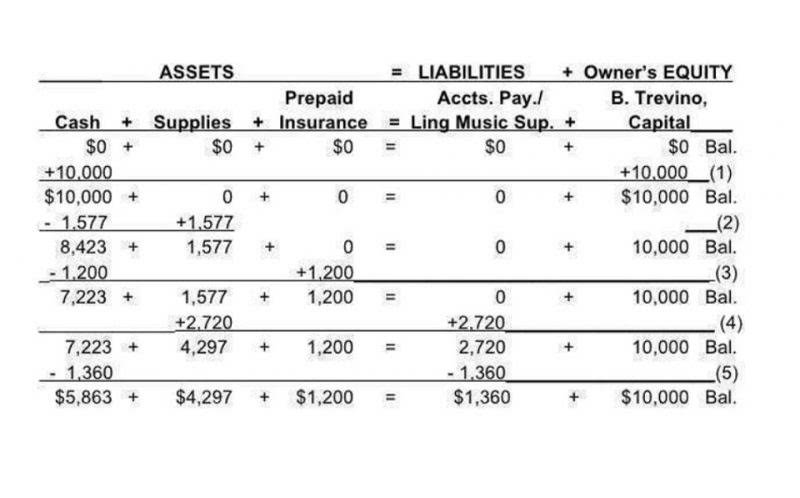In conclusion, tax advisors and Certified Public Accountants (CPAs) are critical business partners. A tax advisor offers specialized tax knowledge, ensuring businesses remain compliant while minimizing tax liabilities. Meanwhile, CPAs provide a broader range of services encompassing auditing, accounting, financial planning, and consulting. Secondly, the range of services offered by CPAs extends far beyond taxation. While tax advisors specialize in tax-related matters, CPAs provide various financial services, including auditing, bookkeeping, financial planning, management tax preparer vs cpa consulting, and forensic accounting. There is a common misconception that life as a tax accountant is boring and repetitive, and that couldn’t be further from the truth.
- That all helps reduce your overall tax bill or increase your refund.
- A tax preparer will likely cost less than a CPA but usually has less extensive knowledge and fewer credentials.
- Whether you opt for a CPA or an accountant, FreshBooks makes your financial management easier than ever.
- An accountant is a person whose job it is to analyze and review financial records, keep track of a business’s cash flow and financial transactions, and assist in some tax preparation duties.
- CPAs can also represent clients in front of the IRS state tax authorities during a tax audit, whereas a general accountant cannot.
- While CPAs are licensed professionals offering a wide array of expert accounting services, tax preparers are non-licensed and specialize in only tax preparation.
- A tax professional also offers general counsel and will keep updated on tax laws, regulations, and other information that can lower your business tax liability and maximize your deductions.
Benefits of hiring tax preparers
- There, he has risen from the role of staff accountant to that of tax manager.
- Many CPAs offer payroll services, managing all aspects of payroll for businesses, including calculating pay, withholding taxes, and ensuring accurate and timely delivery of paychecks.
- They help strategize and plan for tax efficiency, preparer tax identification number is crucial, keep abreast of changing tax laws, and ensure compliance with all tax obligations.
- Earning one or more of these certifications may expand your career options.
- Therefore, they can represent you on any matters related to audit, appeals, or payment or collection issues.
It’s better to work with a CPA with the training and experience for planning, strategy, or financial advice. Non-CPAs can prepare and compile financial statements, whereas CPAs can also assist their clients during IRS audits. CPAs and tax accountants are both professional tax preparers, but they perform various tasks. Cody Belland has been with the CPA firm Wolf & Company, PC for over six years.
- Tax accountants help individuals and companies prepare and file accurate tax returns that meet all legal standards.
- Once they pass the exam, accounting professionals must continue their education to stay updated on tax law, tax code, and other vital areas.
- When tax disputes arise, tax preparer can help resolve these issues.
- Here, the CPA firm services come to the rescue, and these services work as expert guidance and assistance to the business owners.
- Both Certified Public Accountants (CPAs) and tax preparers are professionals authorized to prepare and file tax returns.
How Does a Tax accountant Differ From CPA Services?

Not all accountants are CPAs (certified public accountants), but all CPAs are in the accounting profession. Typically, an accountant has achieved a bachelor’s degree in accounting. A certified public accountant earns bookkeeping this designation after completing specific educational and work requirements and passing a CPA exam. Tax accountants work with clients to produce tax return documents that follow laws and regulations. Before tax time, these professionals help clients create a plan to reach their desired financial goals. Throughout the filing process, they keep clients updated on their return information.

Which Type of Tax Professional Is Right for You?
CPAs can also represent clients in front of the IRS state tax authorities during a tax audit, whereas a general accountant cannot. If you need someone to take care of your small business’ financial needs, you may wish to choose a general accountant. If you’re running a large corporation, with complex tax returns and SEC reporting, a CPA is better suited to your business.
Auditors master the specialization through a combination of education and on-the-job training. Many hold formal credentials as certified internal auditors or certified fraud examiners. This means a CPA is likely to be more knowledgeable in the field of accounting than someone who has not earned the designation.
Who Is A Certified Public Accountant Or CPA?

This ethical code is enforced by the Bookkeeping for Veterinarians American Institute of Certified Public Accountants (AICPA), which also provides disciplinary actions for any breaches. Every state has its own set of requirements that you must meet before obtaining a license; there is no national CPA license. Let us know what type of degree you’re looking into, and we’ll find a list of the best programs to get you there.

Tax Preparer vs. CPA: What Are the Key Differences?
- They ensure you have minimum tax liability while abiding by the law.
- Certified Public Accountants (CPAs) are highly skilled professionals who offer various financial services.
- CPA specialties include auditing financial records, governmental accounting, financial planning and analysis, litigation services, and tax preparation.
- Deciding what type of tax professional is best for you can be a challenge.
- Many also earn accounting certifications through a combination of education, work experience, and exam-based testing.
- Finally, if you are in the early stage of your business and need tax assistance, a tax accountant can help.
Each state also has individual requirements; a CPA will become licensed nationally and in the state where they practice. They can only represent clients for whom they’ve prepared and signed tax returns, and only in front of revenue agents, customer service representatives, and similar IRS employees. They’re also barred from representing clients on matters of appeals or collection issues. However, you must have an active IRS Preparer Tax Identification Number (PTIN) to be authorized to prepare tax returns. This PTIN requirement applies to all tax preparers (including tax attorneys, CPAs, and enrolled agents). IRS-issued PTIN is valid for one year and has to be renewed annually.

Business valuation is a complex process that requires a deep understanding of finance, business strategies, and market dynamics. CPAs specializing in this area can provide a fair and accurate business valuation, which is critical during a merger, acquisition, or sale. They are trained to detect, prevent, and investigate potential fraud within a business. This includes financial statement fraud, asset misappropriation, and corruption investigations. They can offer advice on structuring business transactions in the most tax-efficient way and help resolve complicated tax issues. No, a tax preparer is usually enough if your tax situation is straightforward (like a single job and standard deductions).




